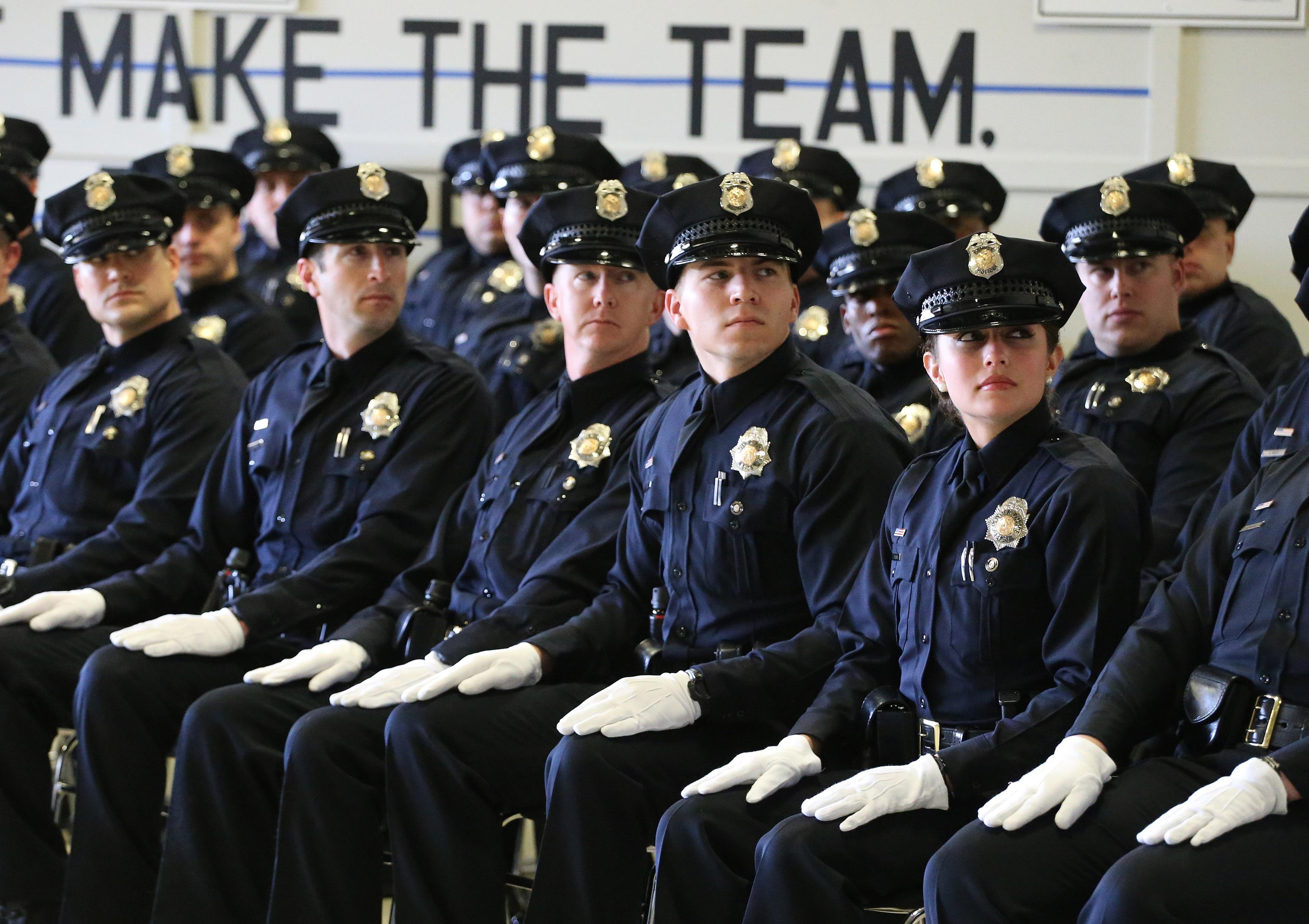
This ballot initiative would allow the legislature to direct $350 million in state money toward helping recruit, train and retain local law enforcement officers. Part of that money will also go toward a new $1 million death benefit for families of officers killed in the line of duty.
Here’s the language you’ll see on your ballot:
Shall there be a change to the Colorado Revised Statutes concerning state funding for peace officer training and support, and, in connection therewith, directing the legislature to appropriate 350 million dollars to the peace officer training and support fund for municipal and county law enforcement agencies to hire and retain peace officers; allowing the fund to be used for pay, bonuses, initial and continuing education and training, and a death benefit for a peace officer, police, fire and first responder killed in the line of duty; and requiring the funding to supplement existing appropriations?
How would Proposition 130 work?
Proposition 130 directs lawmakers to set aside $350 million in additional funding to local law enforcement agencies, on top of existing grants and programs.The funding will go for:
- Increased pay for officers
- Hiring, recruitment and retention bonuses
- Hiring additional officers to address specific geographic areas or types of crime
- Training on things like the use of force, restraint and physical fitness
It will also fund a one-time $1 million death benefit to families of law enforcement officers killed while on duty. That money would be in addition to any death and disability benefits provided through the officer’s direct employer.
Prop. 130 doesn’t require lawmakers to set aside the money all at once, so it would likely be doled out over a number of years. While the $350 million is a one-time requirement, the state would have to continue paying the $1 million death benefit even after the original money runs out.
Who’s for Proposition 130?
Prop. 130 was placed on the ballot by Advance Colorado, a conservative issue group that’s also responsible for Proposition 128 and Amendment 80.
Supporters say Prop. 130 will provide resources to local law enforcement agencies to help train and retain the best-equipped officers in Colorado.
“Crime is up from pre-pandemic times,” said Michael Fields, president of Advance Colorado. “I think crime is one of the top issues on Coloradans’ minds. And local law enforcement, they just don't have the resources that they need. And so using the state money to help with that process is something that is very popular and I think is a good idea given the Coloradans want to be safe.”
The conservative think tank, Common Sense Institute, calculates the average monthly rate for both violent and property crimes has risen sharply in the state over the past twelve years. Colorado crime data shows the violent crime rate peaking in 2022, with over 32,000 homicides, assaults, sex crimes and robberies reported to police. The murder rate also peaked that year, with 390 killings in the state.
CSI also found that while public safety spending has risen over the past decade in Colorado, the number of police per capita has fallen.
When it comes to the new death benefit, supporters say it would be a meaningful increase for families of fallen officers. According to the Fire and Police Pension Association of Colorado, families currently receive 70 percent of those officers’ salaries. Prop. 130’s $1 million benefit on would come on top of that.
“Law enforcement don't get paid enough to start with, and 70 percent when there's been somebody who died in the line of duty just isn't enough,” Fields said. “We want to take care of families when their loved ones put their life on the line for Coloradans.”
Who’s against Proposition 130?
The proposal is opposed by a large coalition of civil rights and progressive groups, including the ACLU, Together Colorado, the League of Women Voters and the Colorado Criminal Justice Reform Coalition.
They argue that Prop. 130 is fiscally irresponsible because it will force lawmakers to prioritize law enforcement no matter what other needs might exist in the budget. And that it ignores other ways of improving public safety without more policing, including alternate responders like Denver’s STAR program and anti-recidivism efforts like the Second Chance Center in Aurora.
“There are so many great programs across the state that do reentry work,” said Kyle Giddings with the CCJRC. “And so the fact that we're putting the money into the police instead of putting it into organizations that have a proven track record of how to make sure people don't end up back in the criminal justice system just doesn't make any sense to me.”
Giddings also argues this increased spending would come at a time when crime has been decreasing in Colorado. Violent crime fell to its lowest level in three years at the start of 2024, 9 points below the five year average.
Prop. 130 is “driving a narrative that we need more policing on the street because there's just violent crime everywhere where the data just tells a different, very different, story,” Giddings said.
He also notes the state is already putting an above average amount of money into public safety. Common Sense Institute found Colorado ranks seventh in the nation for its per capita law enforcement spending.
Finally, Giddings argues that more money won’t necessarily mean departments will be able to find more qualified people interested in becoming officers.“We can look right now at the Department of Corrections where we are putting more and more money into an attempt to recruit more and more officers and staff for the Department of Corrections year over year,” Giddings said. “We have seen an increase in attempts to recruit new staff in the Department of Corrections and it's not working.”









